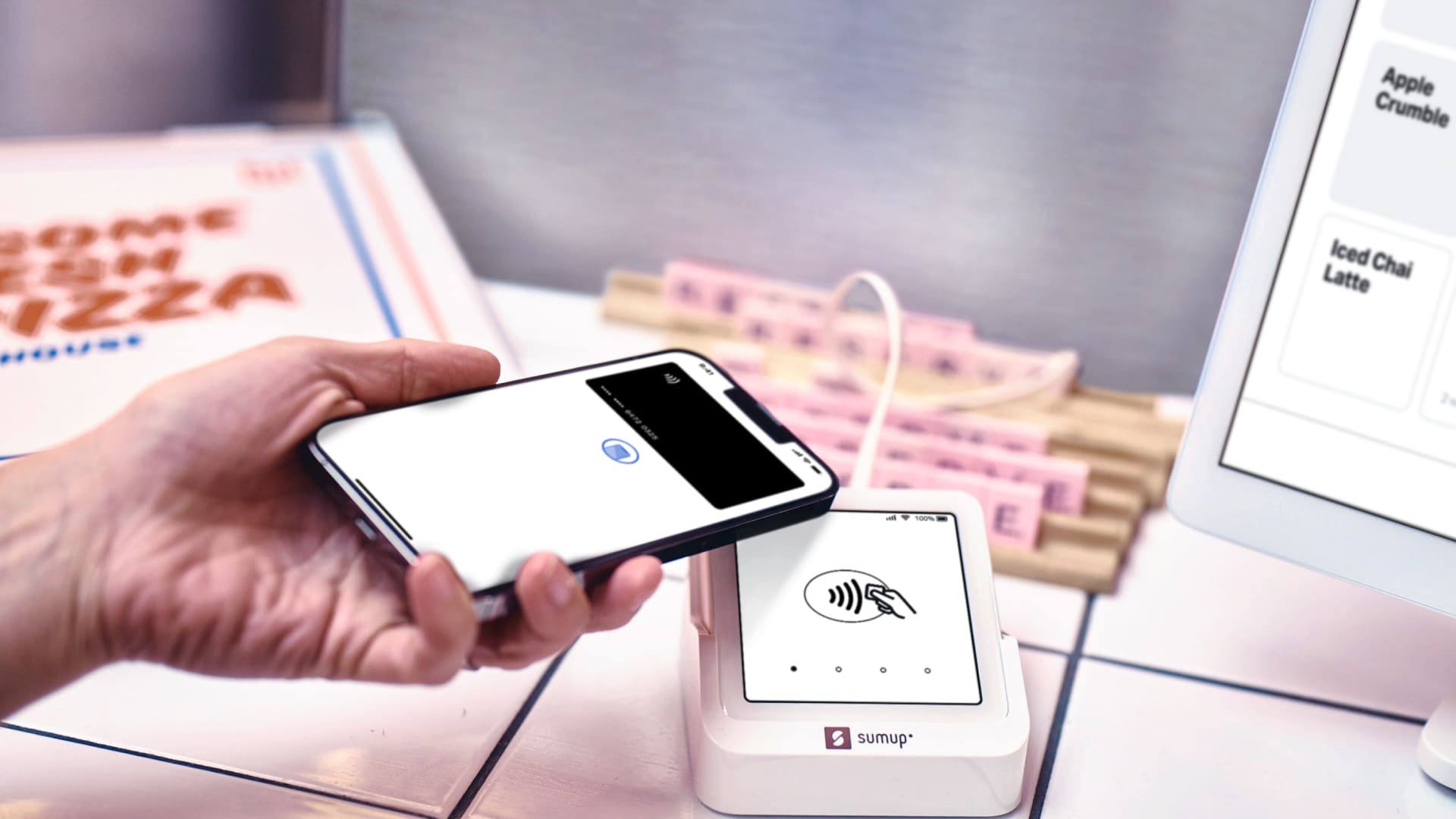British payments startup SumUp, known for its small card readers, on Monday announced it has raised 285 million euros ($306.6 million) in a bumper round of funding that values the company north of $8.6 billion.
Sixth Street Growth, the growth arm of global investment firm Sixth Street, led the investment in SumUp, while existing existing investor Bain Capital Tech Opportunities, fintech investment firm Fin Capital, and debt financing firm Liquidity Group, participated in SumUp’s latest round as well. The round predominantly consisted of equity, though a small portion of the funds was raised as debt.
SumUp Chief Financial Officer Hermione McKee said the fresh capital gives the company “more firepower to act on opportunities that we see arising over the course of the next two years.”
“If we think about our geographical expansion, in August we launched Australia as our 36th market globally,” McKee told CNBC in an interview last week ahead of the news.
“We have this foothold in Latin America and there’s more expansion that can be done there. Then we look at Asia, how do we think about that region, and then obviously opportunities across Africa. There’s so many opportunities globally. We’re constantly assessing this ‘buy versus build’ strategy.”
With this round, the company says it “continues to build further” on the valuation it attained in the summer of 2022, when SumUp was last valued at 8 billion euros ($8.6 billion) in a 2022 funding round that saw the firm raise a whopping 590 million euros of capital for growth and global expansion. A SumUp spokesperson confirmed the deal is an up round, meaning its valuation is higher than it was previously.
That’s no small achievement given the state of European technology valuations, which have taken a hammering over the past year as investors flee from tech due to higher interest rates and macroeconomic headwinds.
According to venture data firm PitchBook, median valuations declined in the third quarter across all stages compared to 2022, with late-stage valuations showing the most resilience and growth-stage the least.
Earlier this year, existing shareholders in SumUp sold stakes in the firm at a heavily discounted price to its last official valuation. One, online coupons site Groupon, disclosed in a filing with the U.S. Securities and Exchange Commission that it was selling off shares in SumUp at a price that would value the company at just 3.9 billion euros ($4.2 billion).
M&A shopping spree ahead
SumUp, which competes primarily with Jack Dorsey’s payments business Block, formerly known as Square, as well as PayPal’s iZettle, FIS’ WorldPay, Stripe, and Adyen, has been expanding into new lines of business lately, not least lending. The company launched a service that enables merchant to apply for a cash advance or business loans up to a certain limit based on their card sales revenues.
SumUp secured a $100 million credit facility from Victory Park Capital this summer to bolster its cash advance offering. McKee said that the lending product has been going well so far, with the vast majority of its merchants paying back in a timely manner.
“We’re seeing quick returns on that capital, and merchants that are genuinely supporting their growth. And then they’re able to repay that back in a short time periods for the transaction volume that we see,” McKee said.
“We haven’t seen any real pullback in terms of repayment data over the course of the last six months,” she added. “Our models are constantly iterating to make sure that that those factors we’re observing don’t become stale.”
SumUp also launched new point-of-sale offerings, including self-service kiosks that let customers order in stores using a touchscreen interface.
SumUp recently launched Apple’s Tap to Pay feature in the U.K. and the Netherlands, which enables people to tap their card or phone on a vendor’s iPhone using a smartphone app. It’s also been upgrading its existing point-of-sale systems, with its POS Lite and POS Pros countertop systems that can be paired with SumUp’s card readers.
Going forward, SumUp plans to explore more merger and acquisition opportunities to help it drive its expansion abroad.
“M&A is always something that’s on the table,” McKee said. “We have expanded into new geographies in the past with M&A. That’s something we’re always assessing. We have experience in both building an ecosystem as well as buying. And both of these things are available to us, obviously, yes, this just gives us greater optionality and the ability to move quickly, should we see the right opportunity arise.”
SumUp has no immediate plans to go public, McKee added, as it has ample access to capital in the private markets.
“I think it’s proven by this round that we actually have access to private pools of capital, so we don’t need to IPO,” she said.
“We’re constantly improving processes, actually making sure that we are operating at a standard and quality that is appropriate for public markets. But at the same time, this is not something that, you know, is imminent, and around the corner that we’re actively planning for today.”
